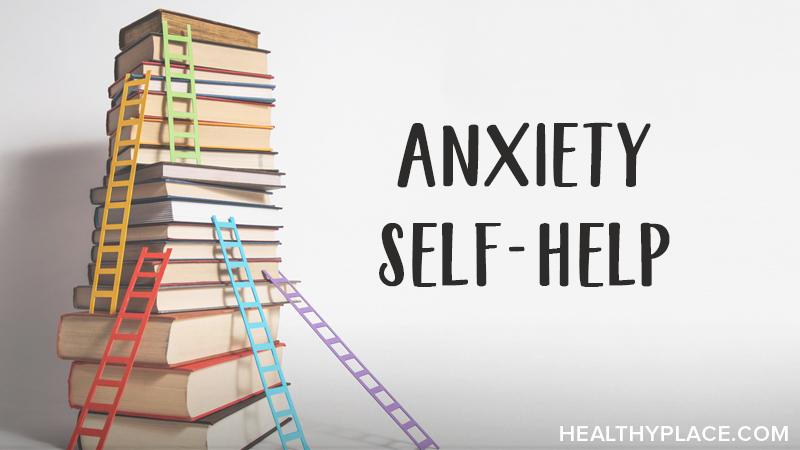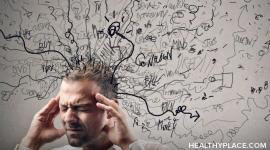What Is Anxiety Self-Help?
 Anxiety self-help is a type of anxiety management in which an individual experiencing anxiety takes charge of the condition and develops his or her own plan to get rid of anxiety. Rather than treatment prescribed by a doctor or under the guidance of a mental health professional, anxiety self-help involves techniques, skills, and activities chosen and managed by the person who is in the process of overcoming anxiety.
Anxiety self-help is a type of anxiety management in which an individual experiencing anxiety takes charge of the condition and develops his or her own plan to get rid of anxiety. Rather than treatment prescribed by a doctor or under the guidance of a mental health professional, anxiety self-help involves techniques, skills, and activities chosen and managed by the person who is in the process of overcoming anxiety.
That said, self-help can be done within the context of other treatment. Someone might be under a doctor’s care and take medication but still engage in self-help activities to broaden the way he or she is treating anxiety.
Common Anxiety Self-Help Practices
Anxiety self-help practices are wide and varied. That’s one of the things that makes self-help approaches effective. There are many different approaches to choose from in order to reduce anxiety. No one practice is better than another.
No one will benefit from each type of practice, but most people will benefit from something. What works depends on such things as personal preferences, the nature of the anxiety, and life circumstances.
Some examples of common self-help practices are:
- Physical self-care such as relaxation techniques,
- Mental or emotional self-care such as accepting yourself,
- Building a toolbox of coping skills, exercises, and techniques for anxiety relief,
- Nutritional approaches like diet, herbs, and supplements for anxiety,
- Meditation and mindfulness techniques,
- Changing thoughts,
- Bibliotherapy—reading books and articles about anxiety and anxiety reduction,
- Replacing anxiety with purpose.
In addition to wondering what anxiety self-help is and what some common practices are, people often have other questions about self-help for anxiety. The following frequently asked questions might answer some of your own questions:
Can Anyone Practice Self-Help for Anxiety?
Each and every one of us has unique strengths and traits that allow us to take the lead in our own lives. Everyone can indeed practice self-help for anxiety. However, that doesn’t mean that everyone will do the same things or that the results will be the same.
People are complex, and something that helps lower one person’s anxiety might not help the next person at all. Anxiety is complex, too. There are different anxiety disorders, and each of them can impact people with different intensities and in slightly different ways. Further, people can experience bothersome anxiety without having a diagnosable disorder. Anyone can engage in anxiety self-help, but the experience will be different for everyone.
It is for this reason that there are so many different anxiety self-help practices. Everyone, because there are so many different types of anxiety self-help practices, has the opportunity to try different approaches and design a custom self-help plan to beat anxiety.
Can Anyone Benefit from Anxiety Self-Help Practices?
Everyone can use self-help methods to reduce anxiety. Does that automatically mean that everyone will benefit from them? Most people will benefit, but not necessarily everyone will see a satisfactory reduction in anxiety. Severe anxiety disorders typically require medication and/or regular therapy with a professional mental health care provider.
That’s not to say that self-help practices won’t work for people experiencing severe anxiety. Self-help techniques done along with professional help can be very effective, all of the types of treatment enhancing the others. This applies even to people experiencing less intense forms of anxiety. Sometimes self-help techniques can be enough for anxiety recovery, and sometimes they need to be combined with other treatments. Instead of being one-size-fits-all, anxiety treatments, including self-help practices, are highly individualized.
Do I Need to Tell My Doctor about My Anxiety Self-Help Practices?
People and self-help techniques are complex. If someone has an underlying medical condition, is taking medication, or has physical limitations, certain self-help practices could be dangerous. It’s wise to consult a doctor before beginning any self-help program or plan. Doing so will help keep you safe and healthy.
When Can I Expect Results from My Anxiety Self-Help Practices?
Anxiety is annoying at best and life-limiting, even paralyzing, at worst. It's natural to want it gone from your life immediately. There isn’t a single anxiety treatment, however, that works instantly. Whether someone is taking medication, engaging in therapy, practicing anxiety self-help, or doing any combination of these anxiety treatment approaches, overcoming anxiety takes time.
The empowering thing about anxiety self-help practices is that you are actively doing something, on your own, every single day, to take your life back from anxiety. Progress is sometimes slow, but doing something, taking action that you’ve chosen, takes some power away from anxiety and puts it with you. Any approach, self-help or otherwise, takes time, regular practice, patience, and persistence—all things that come from you.
Anxiety self-help allows you to consistently take small steps, little actions, to reduce your anxiety. The beauty of self-help for anxiety is that not only do your actions weaken anxiety’s power, they strengthen your own inner power.
APA Reference
Peterson, T.
(2021, December 21). What Is Anxiety Self-Help?, HealthyPlace. Retrieved
on 2026, January 14 from https://www.healthyplace.com/self-help/anxiety/what-is-anxiety-self-help



